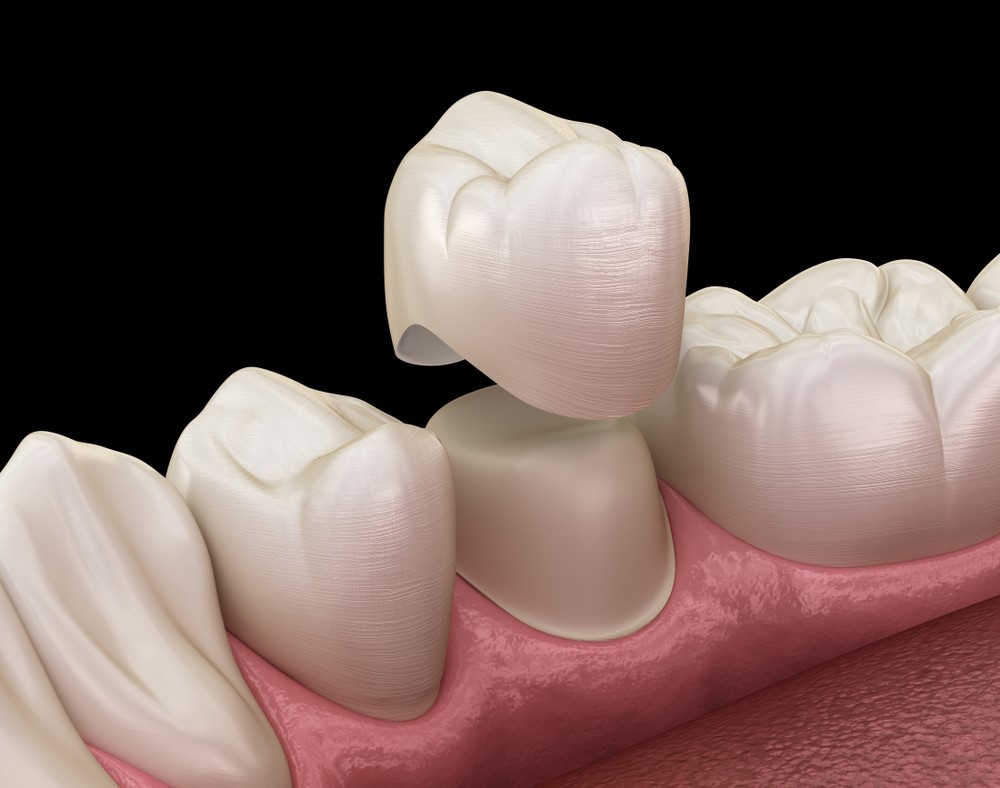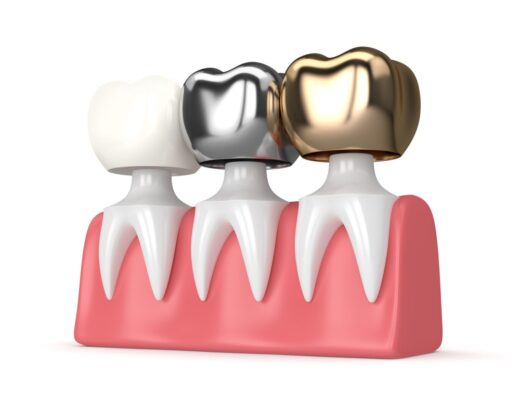
Crowns
A crown, or porcelain crown, is a cap, cover or restoration to replace the missing portion of a tooth.
There are many indications for crowning a tooth. These can be due to aesthetic considerations but mostly a lack of remaining tooth structure. If a tooth is broken down or heavily filled, the crown is placed to protect the tooth from the high biting forces we exert on our teeth whilst eating.
The latest advances in porcelain allows light to transmit through the crown, thereby creating a restoration that is undetectable from the other natural teeth in your smile. With the absence of any metal core on the inside of the crown, there will be no more telltale grey lines that are usually seen with the older metal ceramic crowns.
There are many indications for crowning a tooth. These can be due to aesthetic considerations but mostly a lack of remaining tooth structure. If a tooth is broken down or heavily filled, the crown is placed to protect the tooth from the high biting forces we exert on our teeth whilst eating.
The latest advances in porcelain allows light to transmit through the crown, thereby creating a restoration that is undetectable from the other natural teeth in your smile. With the absence of any metal core on the inside of the crown, there will be no more telltale grey lines that are usually seen with the older metal ceramic crowns.
Book your treatment today

Frequently Asked Questions
How do I know I need a crown?
When a tooth is heavily filled, has lost a lot of tooth structure, or has become weakened for any reason, the tooth is likely to need a crown. The weakened tooth is shaped and prepared in order for the crown to be placed on top of it.
This crown is usually made from casted metal and porcelain. Gold crowns are the strongest type, but are not as aesthetically pleasing as porcelain crowns. The crown acts to protect the underlying tooth structure and prevent it from fracturing.
I have had a root canal, do I need a crown?
Teeth that have had root canal treatment will have become weaker and are at greater risk of fracture. It is always recommended to have crown placed on a tooth which has had root canal treatment.
Will the tooth crown match the color of my other teeth?
Dental crowns can be made from a variety of materials. If gold is chosen (for its strength properties), it will appear gold in the mouth . If porcelain is chosen, we will always endeavor to match it to your natural tooth shade.
How long will a crown last?
A permanent crown can last between five and 15 years, depending on your habits, lifestyle and oral care routine. Teeth grinding can put pressure on a crown, leading to cracks and possible damage.
How shall I look after my crown?
You can treat your crown like a normal tooth. While it does not require any particular care, remember that it acts as a sleeve over the top of your natural tooth and so decay and gum disease can still occur without a good oral health routine. When flossing, try to pull the floss through your teeth rather than upwards – sometimes pulling up and out can catch on your crown and contribute to wear and tear.

